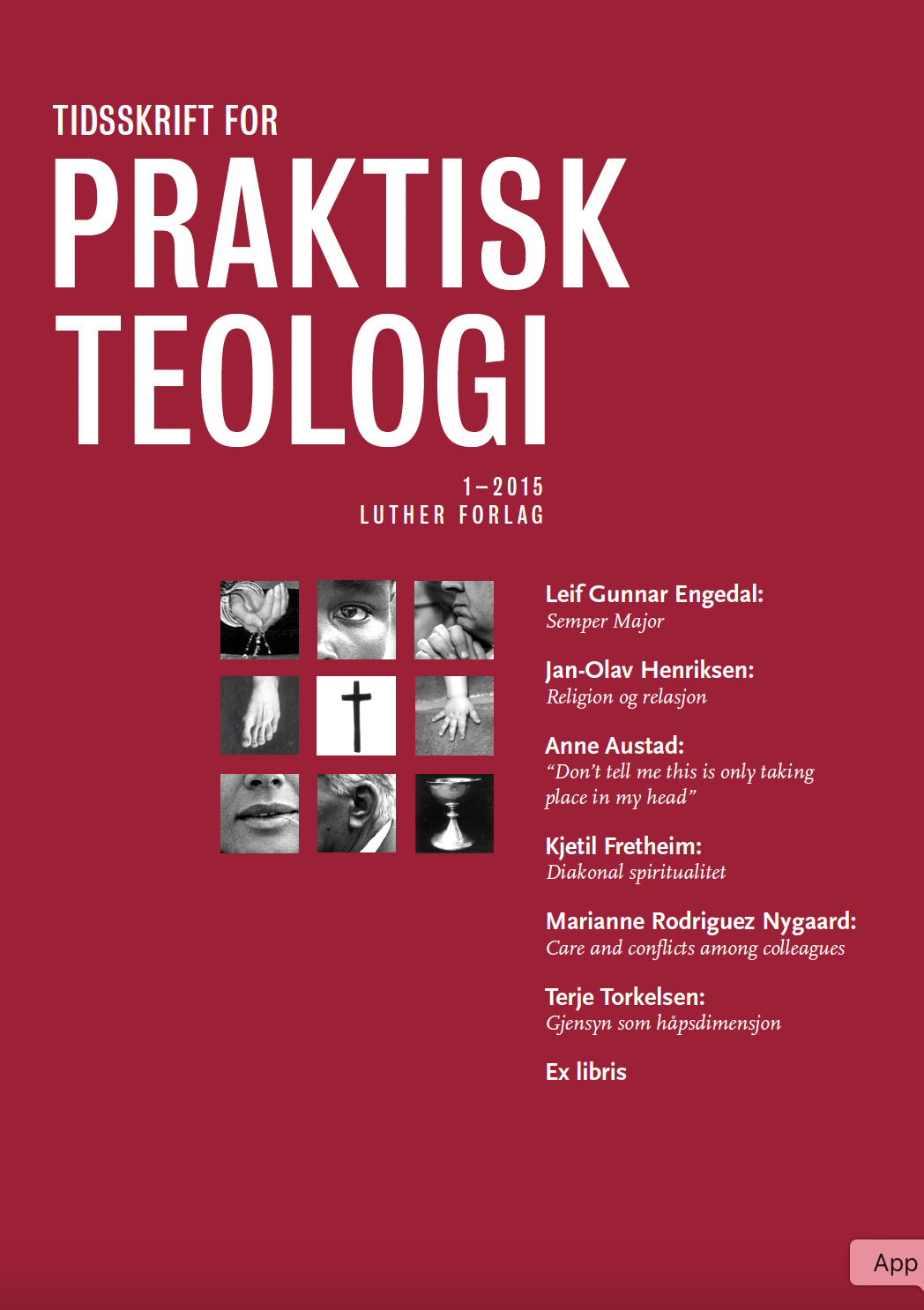Care and conflicts among colleagues
Deacons’ professional knowledge development in the Church of Norway
DOI:
https://doi.org/10.48626/tpt.v32i1.5170Abstract
How does the expression of care between colleagues influence knowledge development in working communities? This paper presents the results of an ethnographic field study of five deacons in five Church of Norway congregations, focusing on their professional knowledge development with colleagues in the congregational context. The analysis applies theories concerning the relation between knowledge creation and care to highlight how the presence or absence of care can influence knowledge development. Knowledge development refers to formation of new knowledge rather than adaptation of existing knowledge. Findings indicate two main constraints regarding deacons’ knowledge development in their working communities. First, interactions between staff members in the congregations I studied indicate a tendency of low-care exchanges. Second, deacons’ knowledge creation is characterised by pre-defined and parallel work processes within their work environment which isolate the individuals from one another. The results show connections between the knowledge created and the extent of care expressed, as well as how relational power influences the knowledge created. I argue that theories of knowledge creation and care must consider to a greater extent the significance of a community’s power relations in the knowledge development process.





